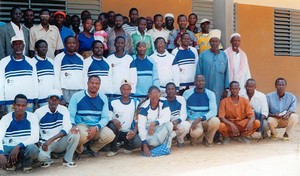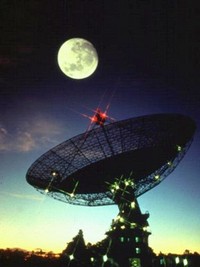 I
am happy to
have been able to usefully contribute to a great worldwide civil movement, self-organized,
based on a free sharing and improvement of resources and ideas in the
human general interest, without neither ritualisation nor merchant or financial
exploitation of the willingness of anybody. In so doing, the most mattering
was to pass on an indispensable public cultural heritage, for which I got no
money but a sincere ethical satisfaction.
I
am happy to
have been able to usefully contribute to a great worldwide civil movement, self-organized,
based on a free sharing and improvement of resources and ideas in the
human general interest, without neither ritualisation nor merchant or financial
exploitation of the willingness of anybody. In so doing, the most mattering
was to pass on an indispensable public cultural heritage, for which I got no
money but a sincere ethical satisfaction.
Since my very first years of school, I am curious about everything, and I particularly like analyzingI, organizing, and formulating syntheses.
Both
during my studies and during my professional life, I was
thus as much
eclectic as possible, and I did not specialize in a single domain. I tried to accumulate the most possible experiences and
knowledges in
several domains, in connection with different people, needs, and techniques.
And after ripening,
I wanted to
pass on what I had learnt and understood, in the idea to return to my society at
least as much as it had brought me,
but thinking
also like HD Thoreau "how vain it is to sit down to write when you have not stood up to live".
While
standing on my feet, life brought me many risks, fights,
dangers, adventures, and (obviously) knowledges. I was built myself, and I built, with all of that.
Among my activities, I have been an environmental engineer and expert,
in particular for the VIth framework program of research of the
European Union, then an
entrepreneur, and a managing leader of civil organizations. From 1998 till 2008, I
became Chairman
of an Eco-humanist International Non Governmental structure, independent and
non-aligned, which I represented in the UN in the framework of its
permanent consultative status. I was also organiser and trainer of executives of eco-humanist
networks, in several countries. And from 2008 till
2009, I was elected as Chairman of the Committee on Development of the Conference of NGOs in consultative relationship with the United Nations.
All this in total freedom.
But my eco-humanist course results especially from a synergy of a
profound personal implication in the reality of the modern society, and an
enthusiastic discovery of the historical roots of humanism.
Indeed, I
felt a very strong motivation
when I
 discovered works of ancient Greek philosophers and of
humanist philosophers of the european Renaissance and of the Century of Lights, with
some Vedic texts too. Before that, I have had the influence of the work of
my father Louis, ethnologist-explorer who had worked on the ancient
civilizations of the Sahara desert. Then, in 1972, Maurice Joyeux had orientated me to
the rationalist philosophers, following articles that I had published in the
newspaper Le Monde Libertaire, that he sponsored.
I plunged with pleasure into the study of all this, interesting me more particularly in the relationship of humanity with
its natural environment, and in the thinkers who treated best this subject.
discovered works of ancient Greek philosophers and of
humanist philosophers of the european Renaissance and of the Century of Lights, with
some Vedic texts too. Before that, I have had the influence of the work of
my father Louis, ethnologist-explorer who had worked on the ancient
civilizations of the Sahara desert. Then, in 1972, Maurice Joyeux had orientated me to
the rationalist philosophers, following articles that I had published in the
newspaper Le Monde Libertaire, that he sponsored.
I plunged with pleasure into the study of all this, interesting me more particularly in the relationship of humanity with
its natural environment, and in the thinkers who treated best this subject.
Step by step, I sorted out and I
deepened some major texts, adding to them modern scientific crosscheckings, and all
this seemed to fit and to complement in harmony. To the point that I
wanted to bring to the foreground a synthesis as clear and exhaustive
as possible, by staying in the trajectory of evolution and transmission which
had led these contributions until our time. I began then to draft the first
texts of what will become later gradually the book "Eco-knowledges for all".
Looking for what similar could
already exist, I realized that talented precursors had already made
this kind of step, but without insisting enough on the fact that a global synthesis
could find its coherence by staying in a dynamic way in the long philosophical
tradition of a natural humanism in permanent evolution and correction.
And the more I went on, the more I
discovered that all this was coming indeed from a natural evolutionary movement, a
real intrinsic project self-generated and carried by the humanity, underlying but
tending to reveal itself.
It was only necessary to discern better its lighting on
the future, its prospective, its projectability, to make the content revealing all
its sense.
I tried to convince of
it the environmentalists whom I knew,
because that brought also a new lighting to modern ecology.
It was difficult. I had supported with some of them the political campaign
of ecologist René Dumont in 1974, for the Presidency of the French
Republic, but it had failed, and
most of environmentalist activists of this time were already
considered by the public opinion as excessive, even sectarians, or
anti-human. It was necessary to come back to more sensible, more
constructive, values.
Finally, in 1979, with some
friends who shared these ideas, we decided for want of anything better
to get organized by our own means to contribute to develop structures associating
harmoniously scientific ecology and humanism, with a modern philosophy of the grand human
House (eco/oïkos) in joint development in its external (natural) and internal (societal)
environment. Our example gained widespread
acceptance, and other eco-humanist associations and networks were
constituted, in one country, then in another, year after year. I
advised and trained many driving forces of these new structures.
In this occasion, I realized
that we needed a common work of synthesis about the philosophical, historical,
scientific, foundations, and about the main modern themes, of our current of
thought. In 1998, I thus resumed the notes and the files which I had
drafted for trainings, and this served me as a kernel to write the
book "Speeches on humanist ecology", modified later to become "The
great human project" in 2010. And there, the process of permanent self-correction,
fundamental in Eco-humanism, was particularly useful for me to improve the final work. On one hand, I corrected several times
this book, and on the other hand,
this led me to think about the direction of the human evolving cultural programming.
 Indeed, in the middle of 1980s, at the beginning of the computing on PC
(Alphatronic, Amstrad, then IBM), I had tried to program a
simple application of artificial intelligence, to facilitate the management of a cooperative organization, by combining a database, rules, and
an inference and self-learning engine. I had not enough spare time and help in advanced programming to complete
technically this project, but I had schematized and tested its logical functioning.
Indeed, in the middle of 1980s, at the beginning of the computing on PC
(Alphatronic, Amstrad, then IBM), I had tried to program a
simple application of artificial intelligence, to facilitate the management of a cooperative organization, by combining a database, rules, and
an inference and self-learning engine. I had not enough spare time and help in advanced programming to complete
technically this project, but I had schematized and tested its logical functioning.
In fact, I conceive artificial intelligence only as an ersatz created by the human intelligence to outsource certain
tasks and to usefuly free accordingly our cognitives capacities for other
tasks, non-outsourceable. But the logical conception of artificial intelligence can enlighten
as well our societal functioning.
In this context, although Eco-humanism cannot be reduced or likened to a cybernetic system, I
remarked that the eco-humanist cultural tool had adaptive capacities which made
it comparable on certain points with an expert-software capable of managing well our evolutionary synergies, under the condition that
its knowledge bases, rules of functionning, and algorithms of learning and inference, remain adequate
and proactively controlled by the global collective human brain.
I thus perfected my knowledge and my practice of
Eco-humanism in this mind also. And I transmit gladly the relay to those who will want to continue in this way, which implies
a priority of the legitimate human will and of the general interest in our human development,
without preventing efficient conceptions and tools which do not contravene
such a development.
Whatever occurs, I wish
cordially bon courage for all the eco-humanists. Keep helping each other; you will feel all the more motivated
and strong to succeed. Since the dawn of Humanity, unity makes strength in
it.
Marc CARL
 back
back
©
www.marc-carl.net